Acer Mesh Model 6312-KW
Introduction
Digging through my grandparents old technology, I found an interesting piece of keyboard history from 1996. Given its age, it features a PS2 connector but the Acer-branded alps-style switches differ slightly from expectation.
Switches
When using this keyboard, the first thing I noticed was the switches. Very clicky, loud and mechanical, and I was hoping they were buckling spring switches. However, they are actually a "hybrid switch", which on eBay listings is referred to as a "Clicky Spring-Over Membrane" switch. People on the internet have described these plate-mount switches as "heavier than Cherry MX Blues but lighter than Complicated White ALPS". I can't comment on the latter part as I've never used ALPS switches, but they definitely feel like a heavier clicky switch than the generic clicky options on the market. Interestingly enough, they used a different switch for the arrow keys on the keyboard - everywhere else uses a white-stemmed switch, but the arrow keys use what I believe is a faded black-stemmed switch. I can only find reference to a white- and black-stemmed variants, as stated on Deskthority's wiki, so I am just assuming they are faded.
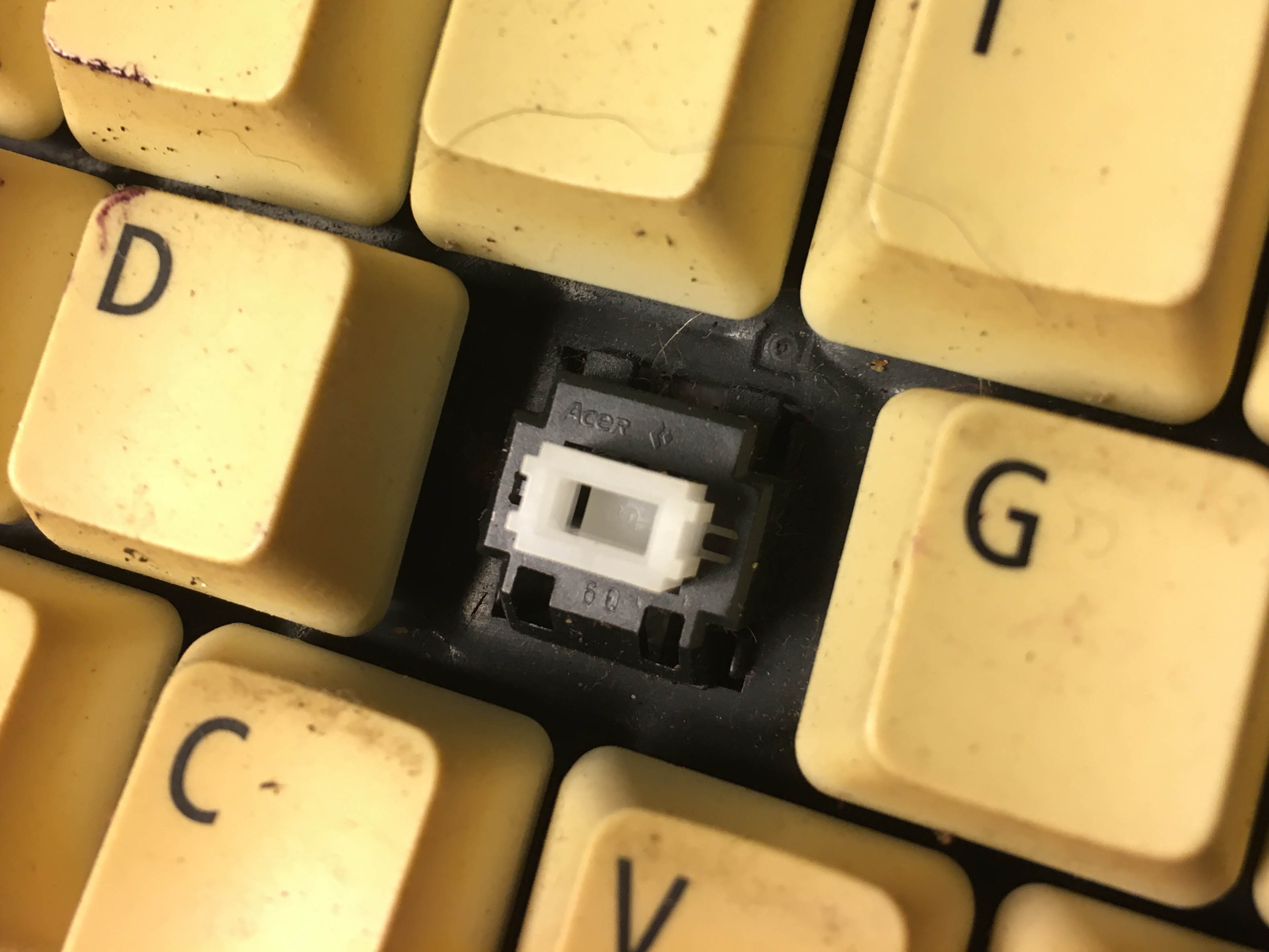
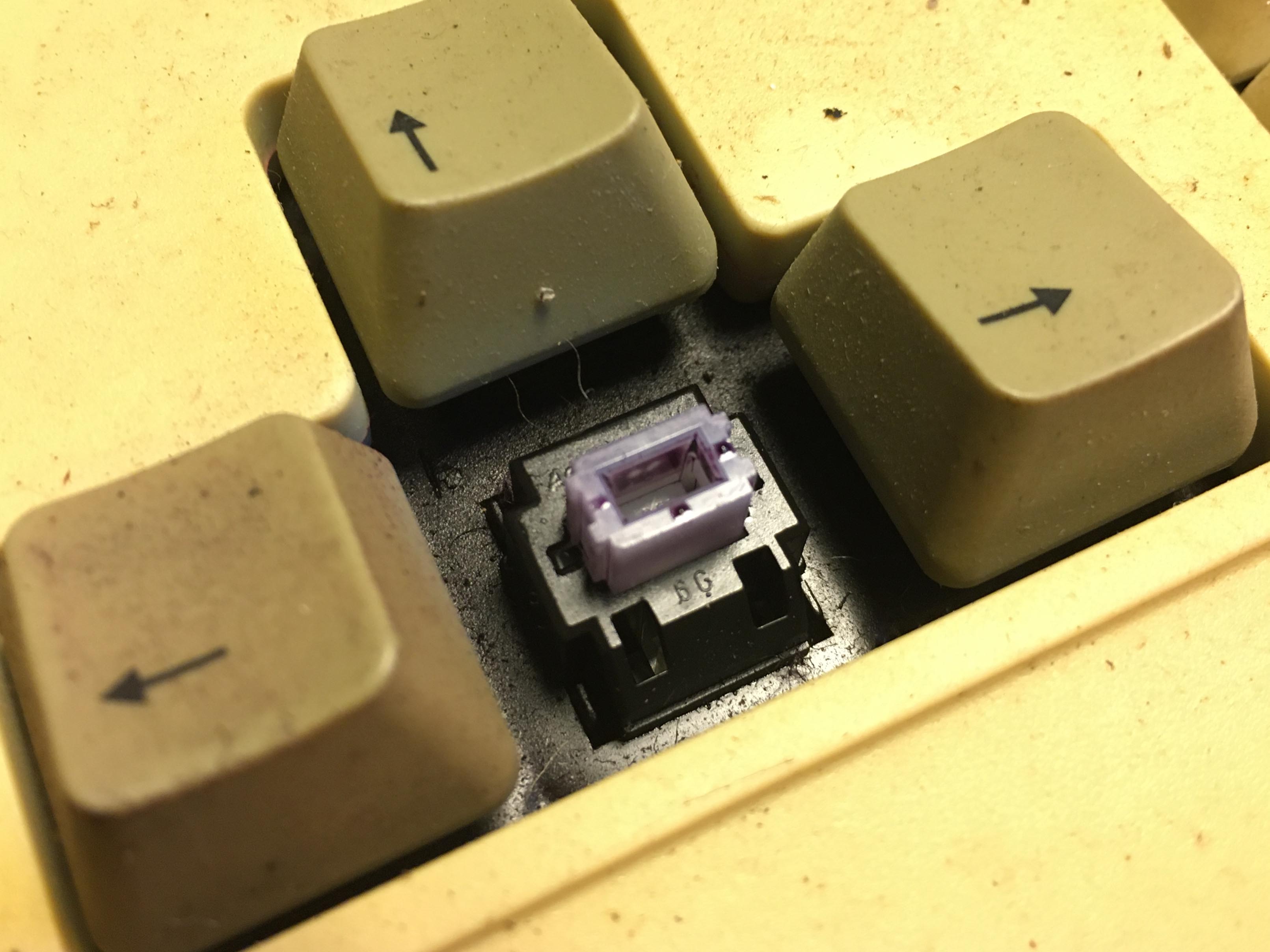
The keycaps are of good quality, and whilst they are dye-sublimated, the printing seems to be of decent quality.
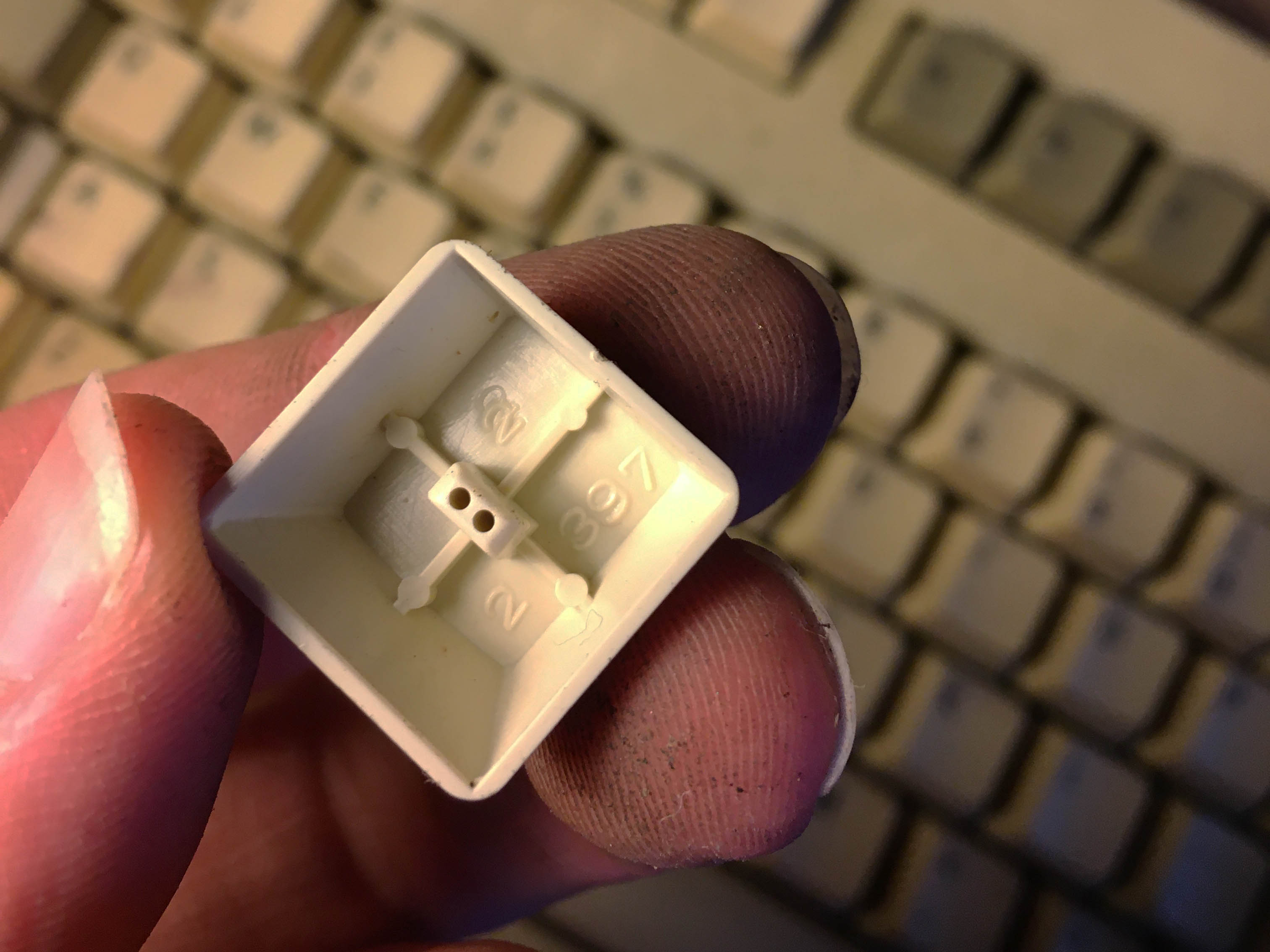
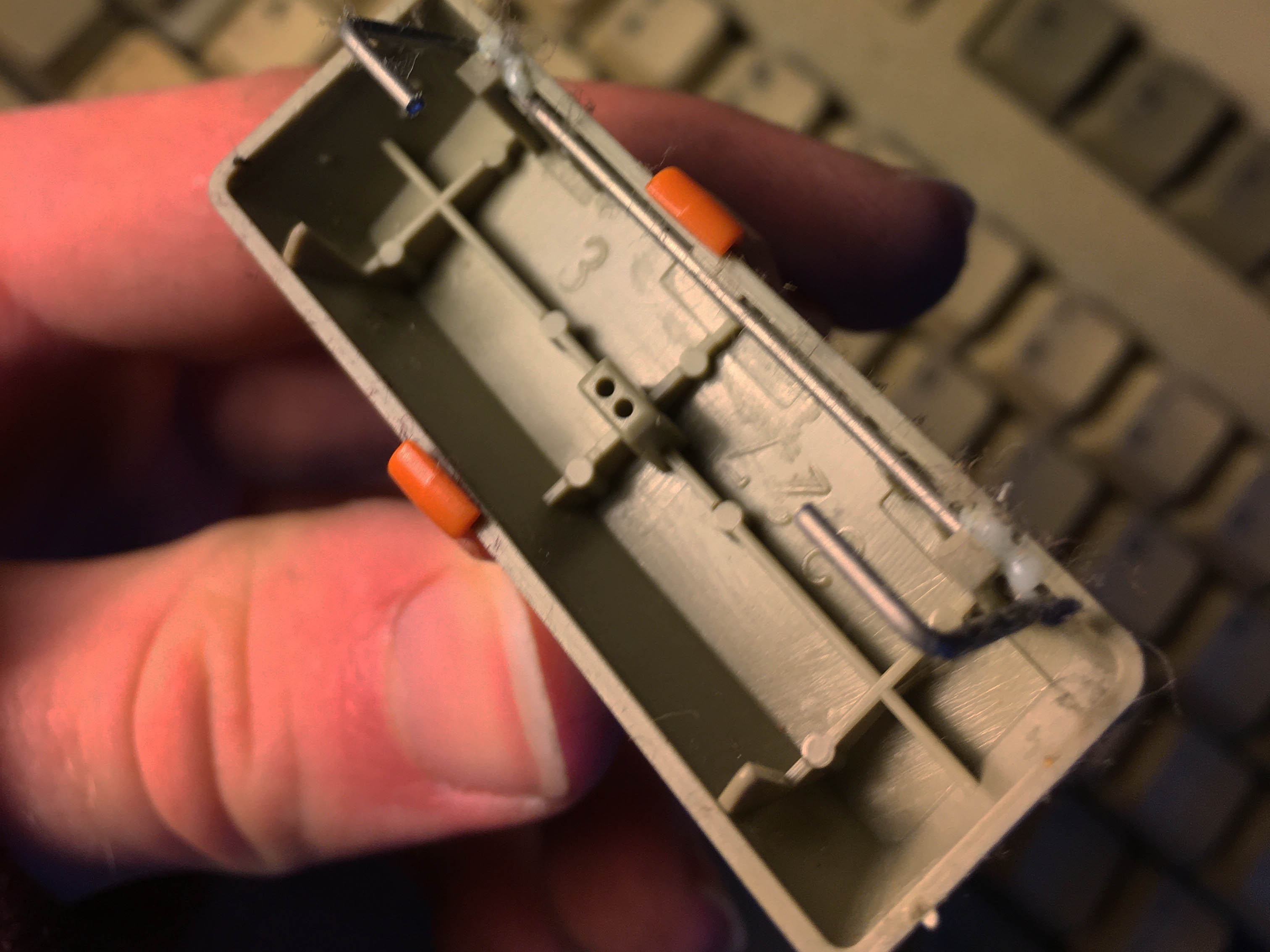
Furthermore, now that I have dug further through the aforementioned wiki, I have found their page on Acer 6310 series boards, and this board is not actually listed. For some reason, this 6312-KW has a design which is far more similar to the 6311-KW boards listed, and is not remotely similar to the case designs of the 6312 boards. I'm not sure what is going on with that. Regardless, lets take it apart and see how it works.
Disassembly
Given that this hasn't been used in probably 25+ years, its not terrible clean. Despite this, its physical condition is perfectly reasonable and still works to this day. After removing the bottom screws and unclipping the top panel, the insides are revealed. The case is a fairly simple design with a top and bottom case, sandwiching the electronics in-between.
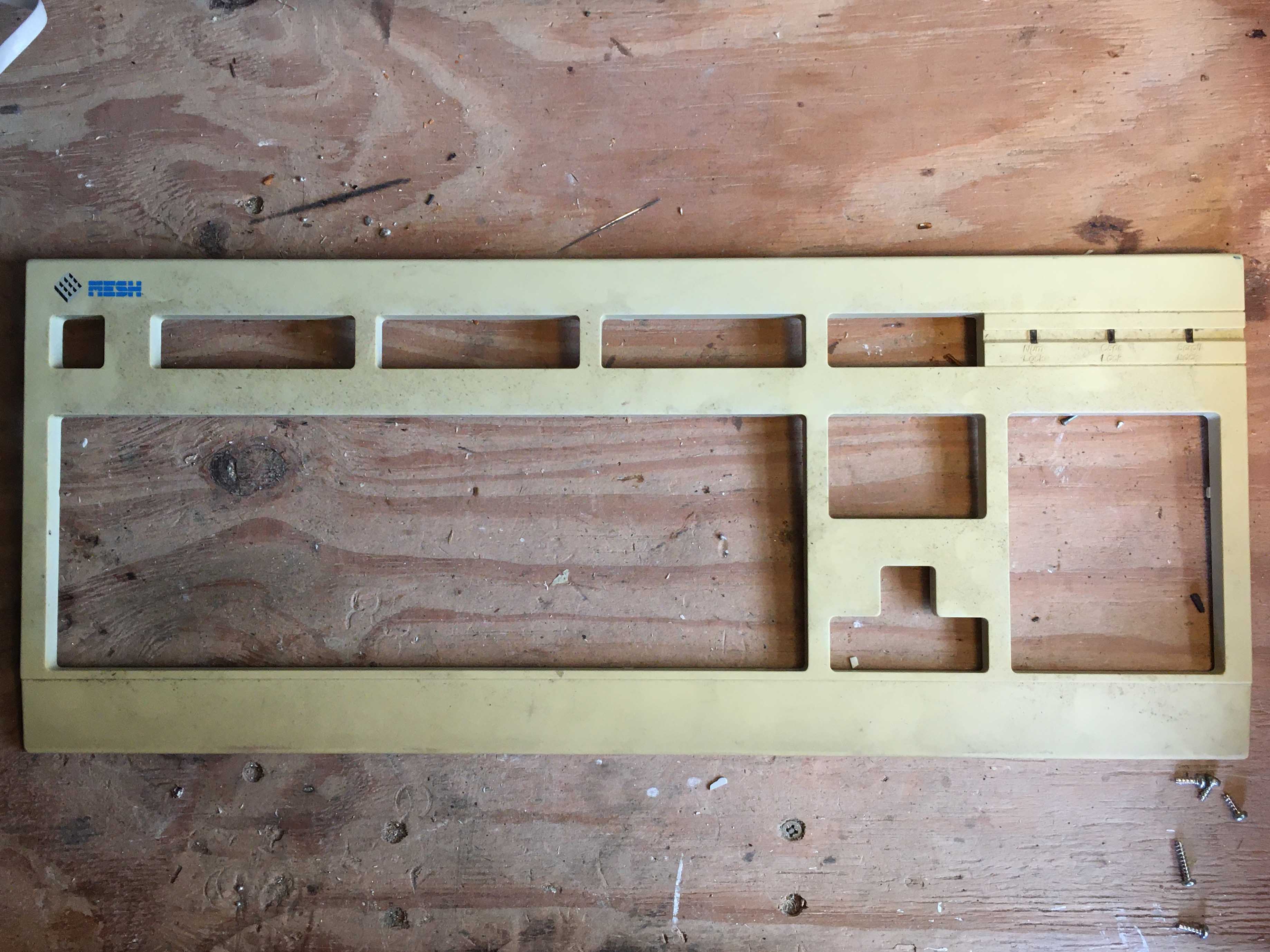
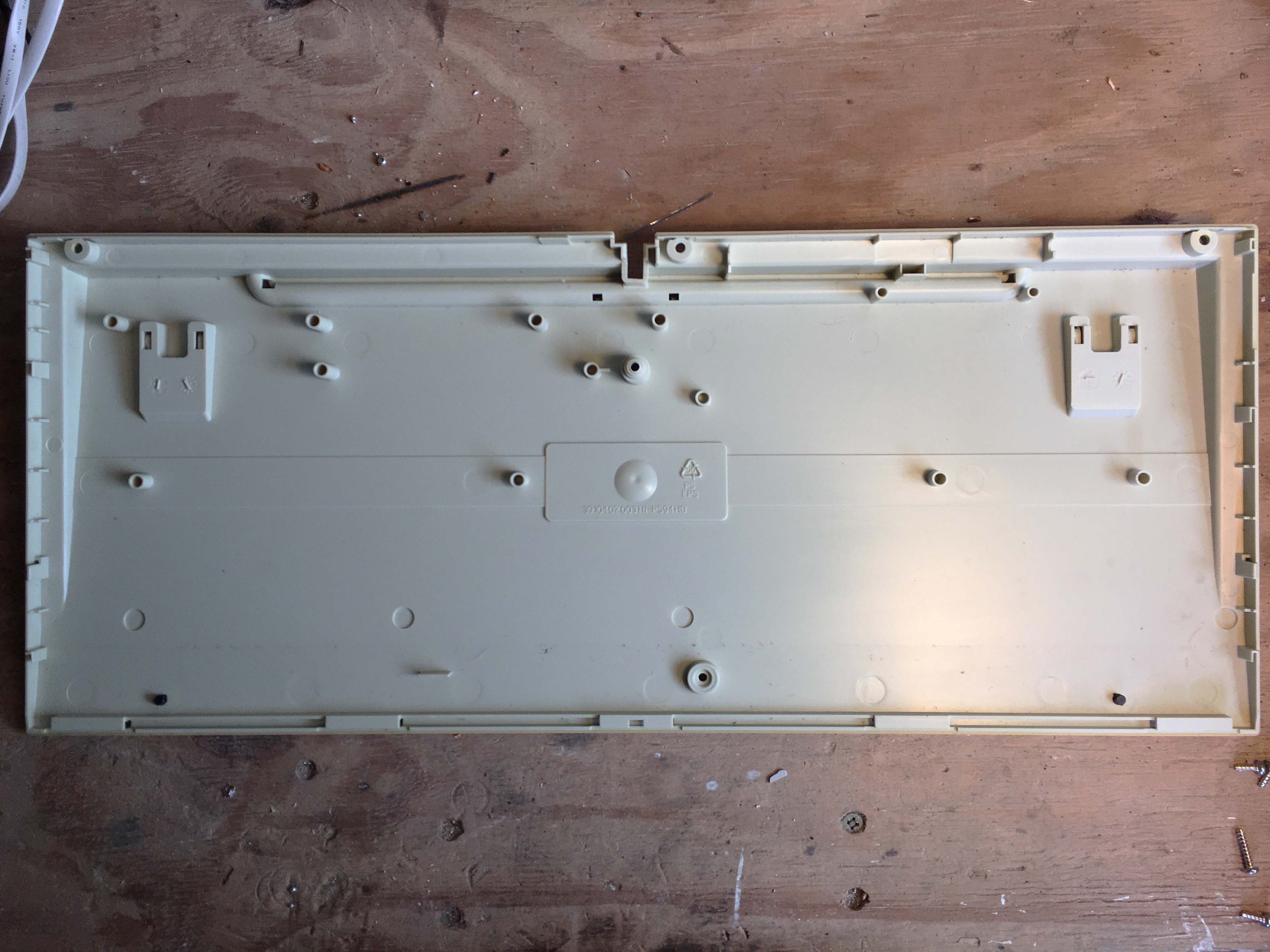
The board itself is then enclosed by a top plastic panel, and a structural metal plate on the bottom.
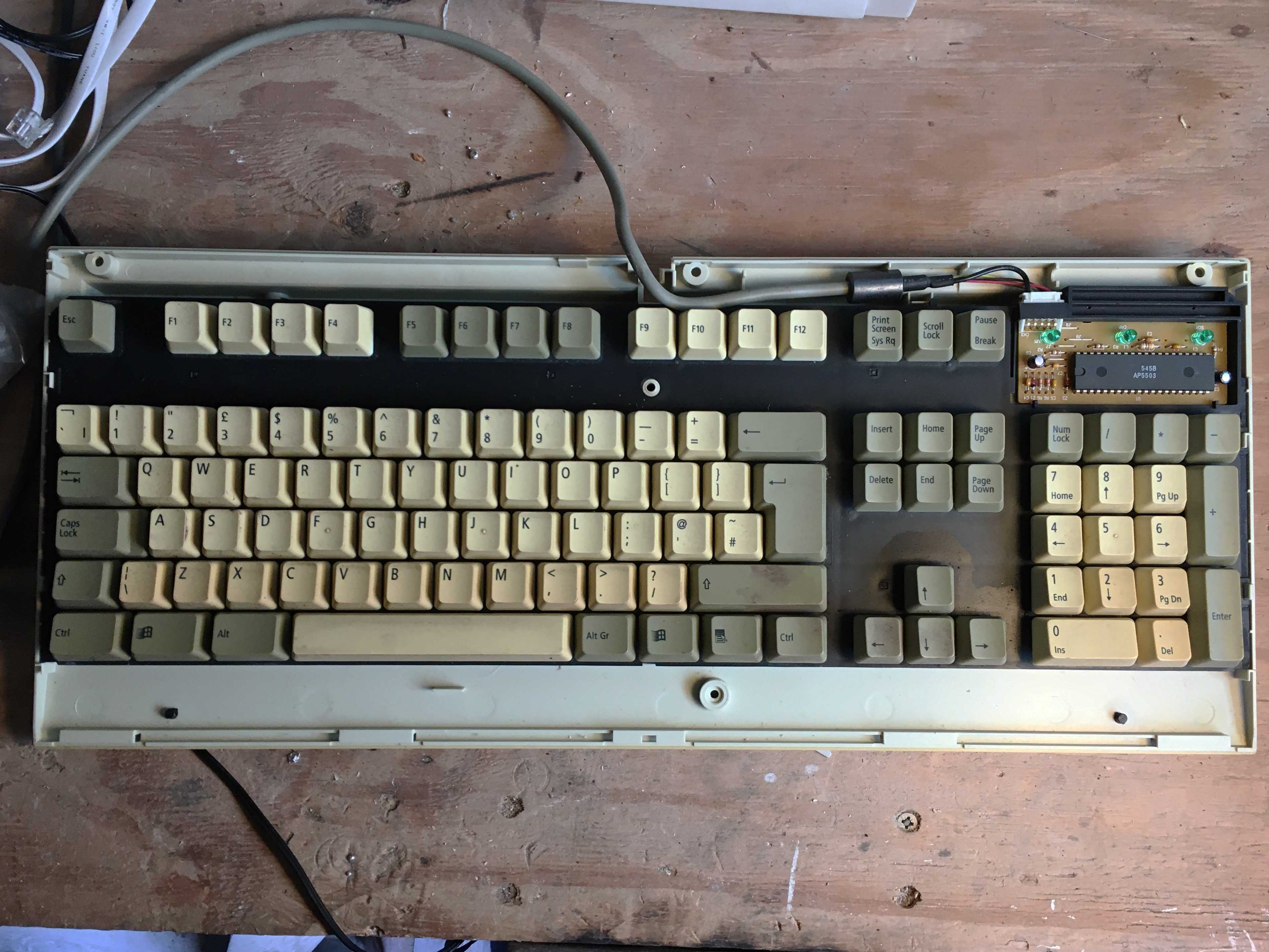
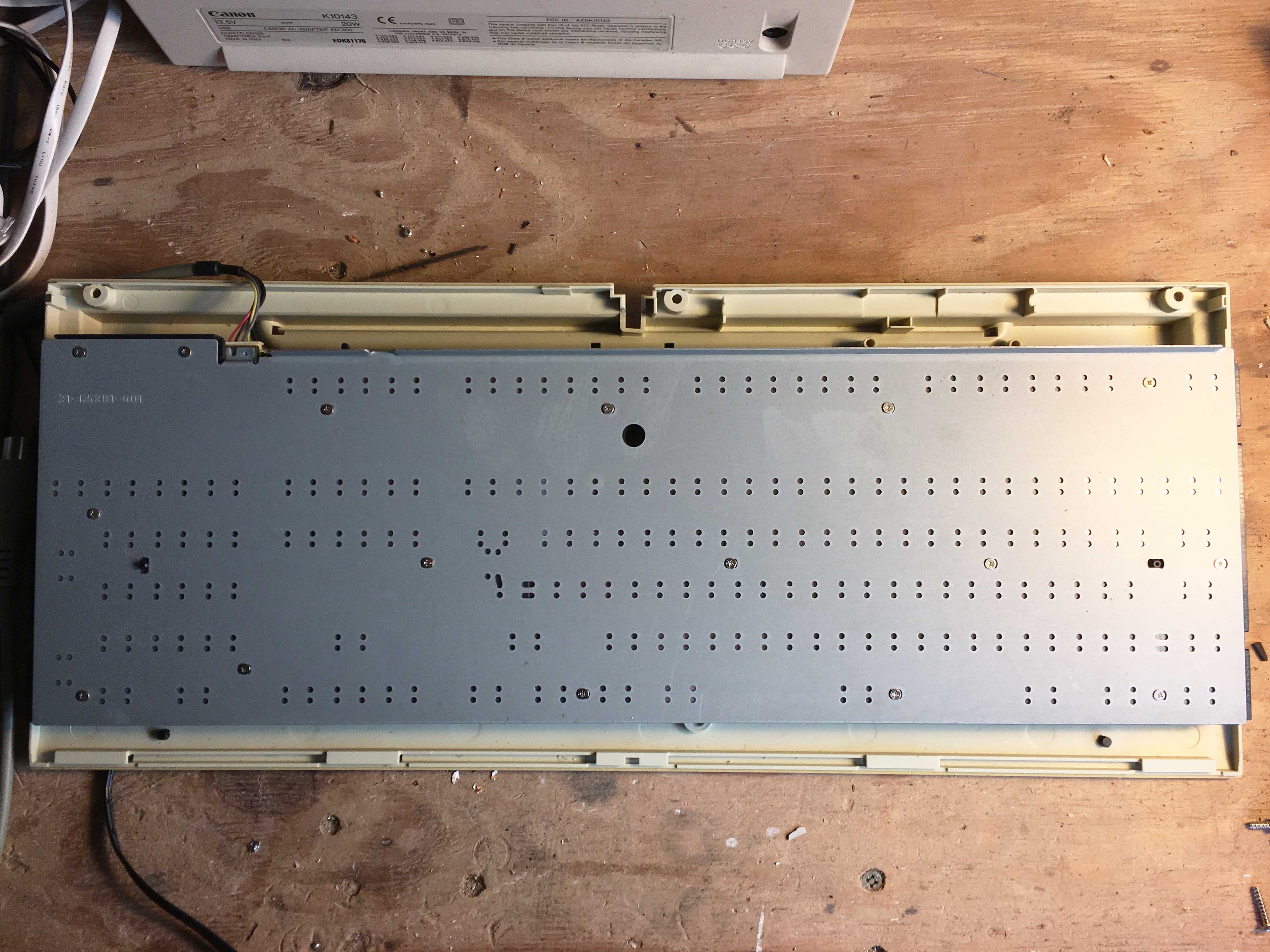
Removing these many tiny screws in the metal plate, will reveal the membrane itself. If this is simply lifted off, you also get a view of the underside of these Acer "Spring-Over Membrane" switches.
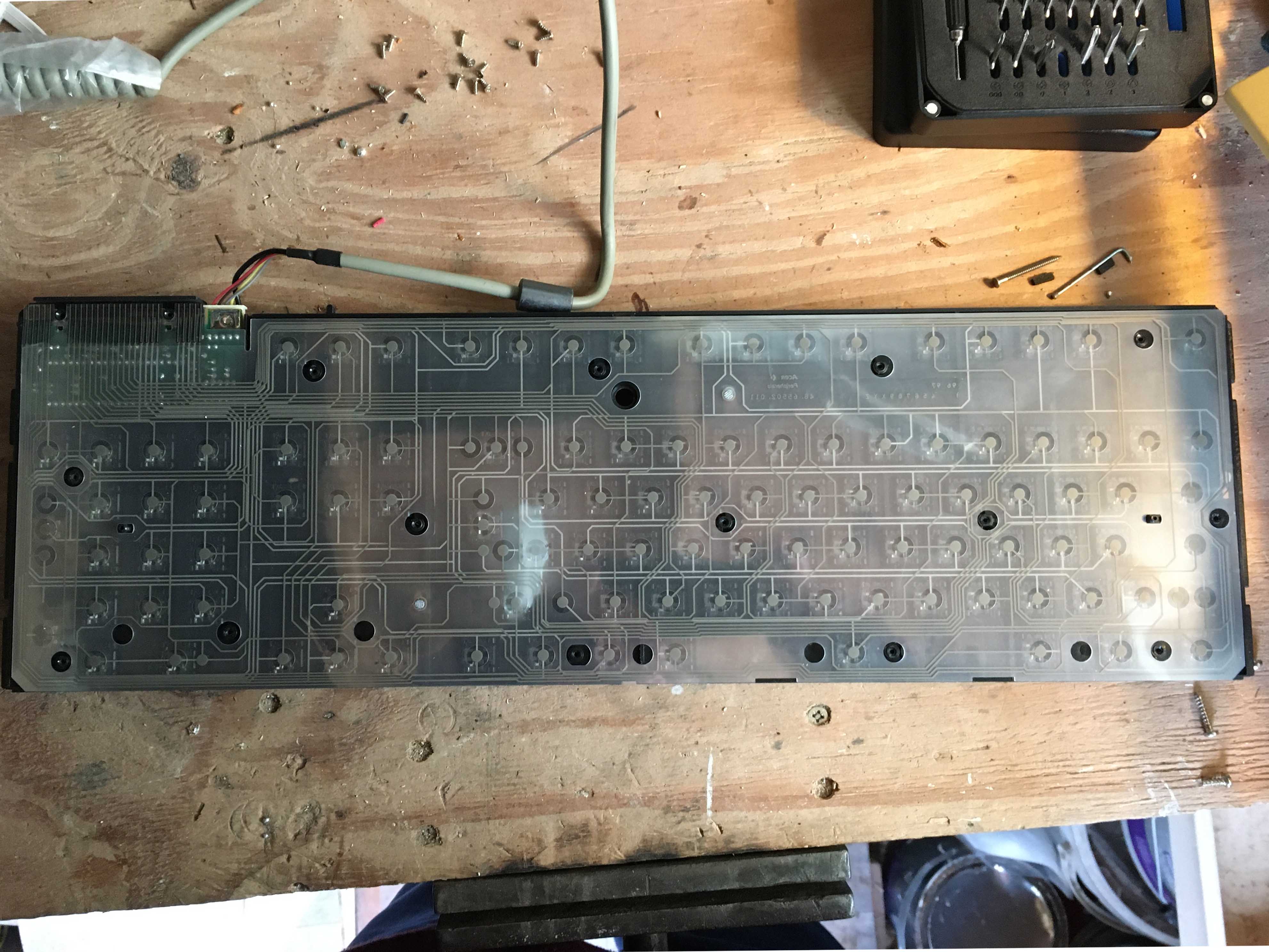
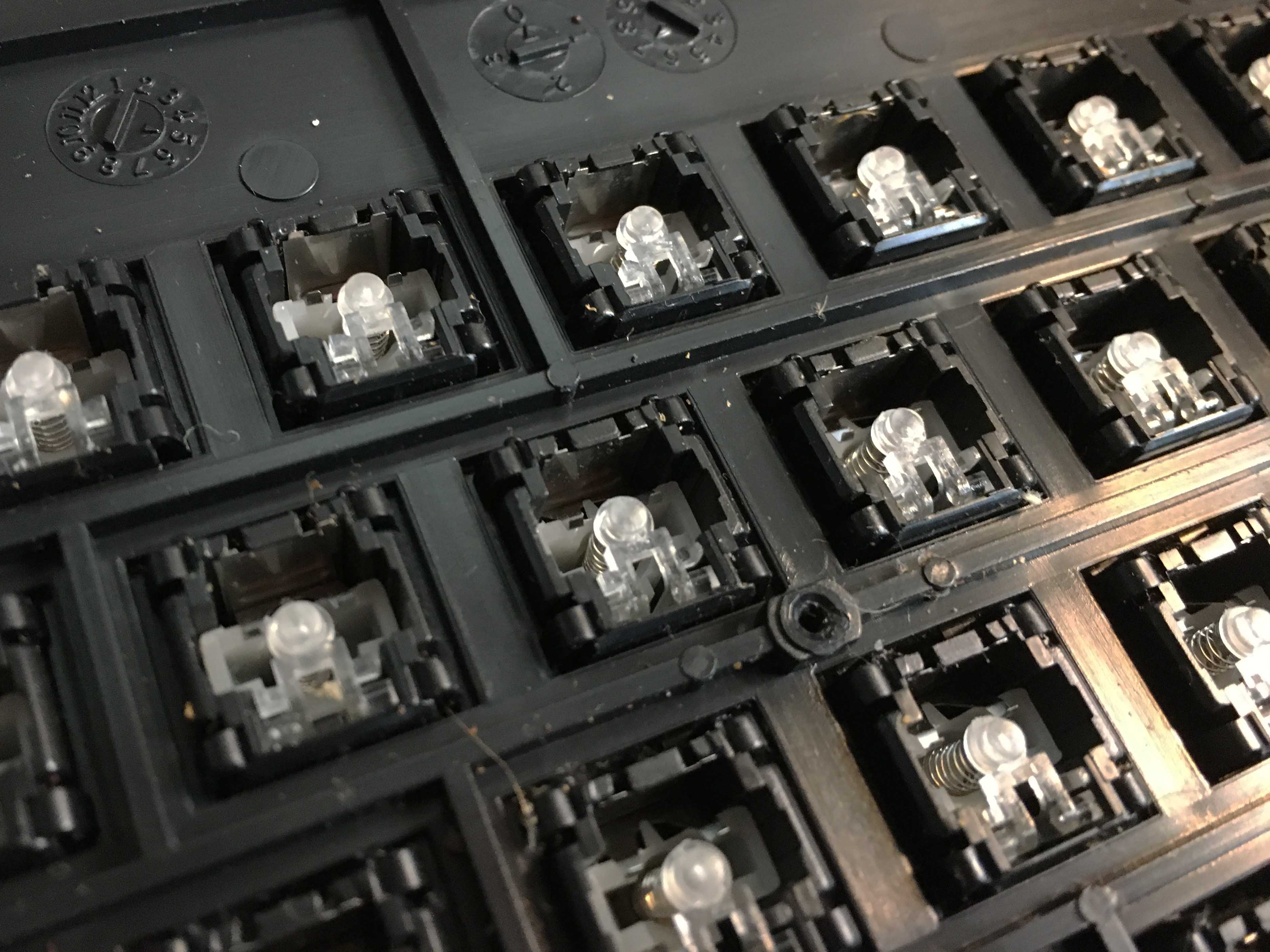
Electronics
The membrane layer is connected to a small, simple, 1-layer PCB - this contains the proprietary microcontroller, the three green LED indicators, and a header for the PS2 connector, along with all the supplementary components for it to work. Given this is membrane, there is no diode matrix and its logic is all hidden in the DIP-40 package.
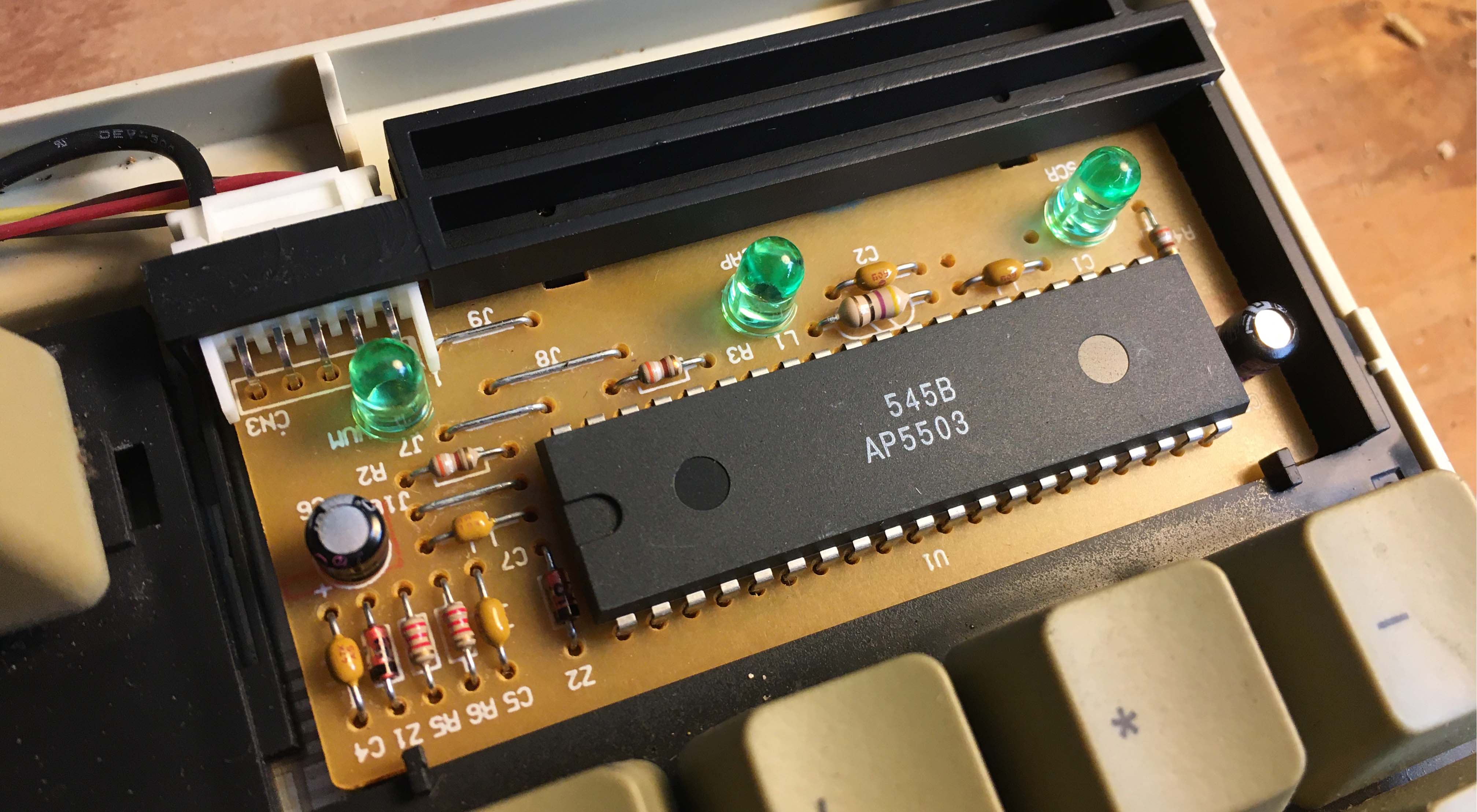
Closing Thoughts
I don't know if I've made this sound more interesting than it actually is. But, in my opinion, it's an interesting insight into the history of keyboards in the '90s. The problem is that I don't like clicky switches and I don't remotely want to use it - especially given my strong preferences in mechanical keyboards. It's big, loud, plastic-y and doesn't have any of the cool designs that some of the other 6312 boards have. This 6312-TW 4U has a novelty design for its two-step feet and a "distinctive reverse-curve case profile", which looks so much cooler. Regardless, this was a fun rabbit-hole to dive down, and I have another keyboard sitting on my shelf.